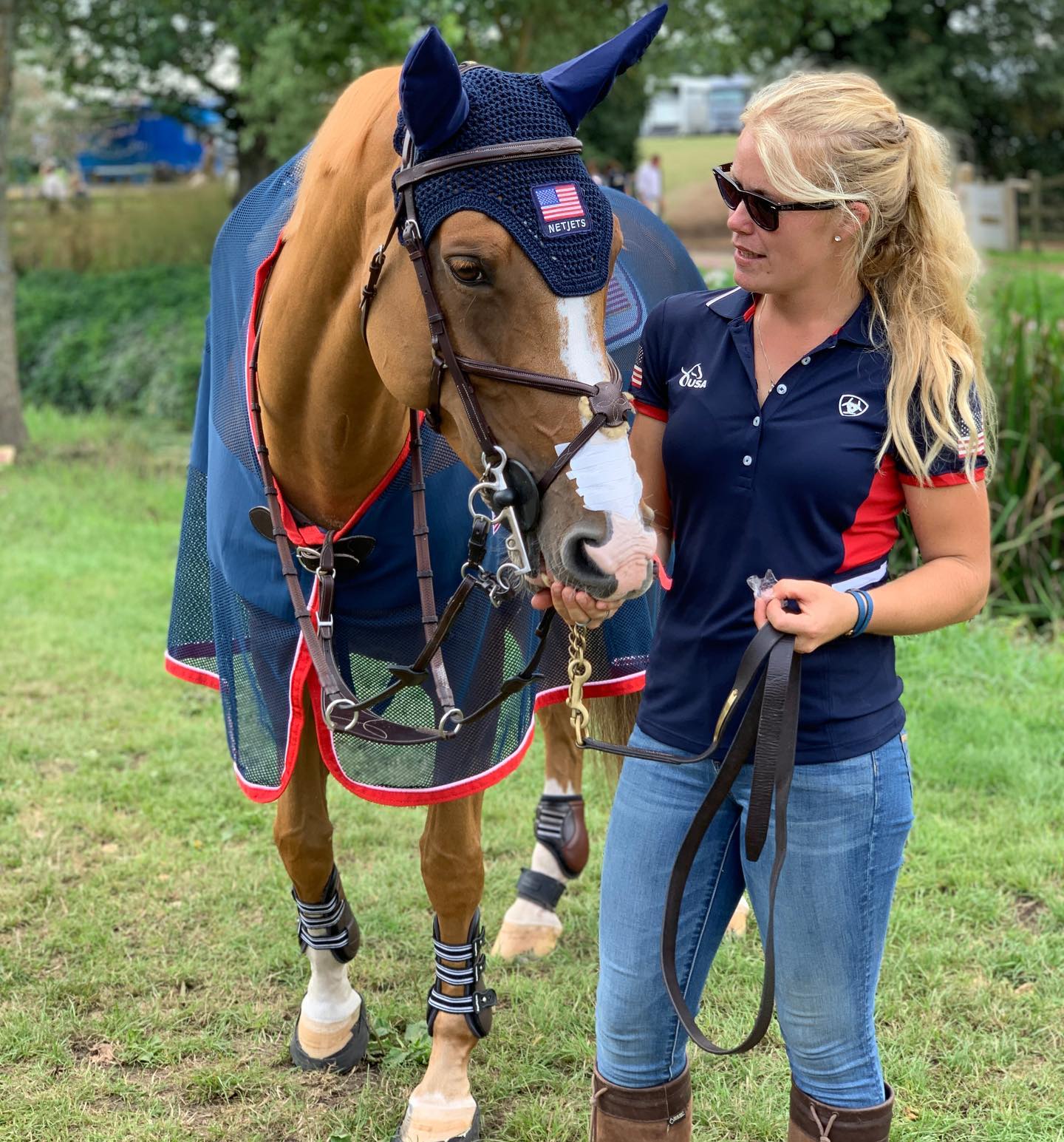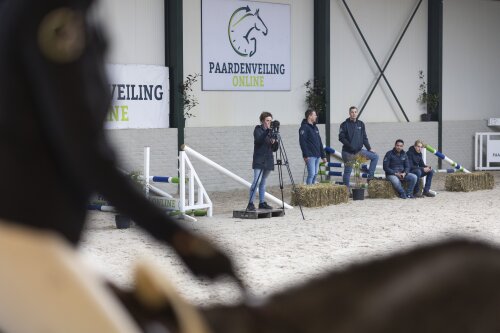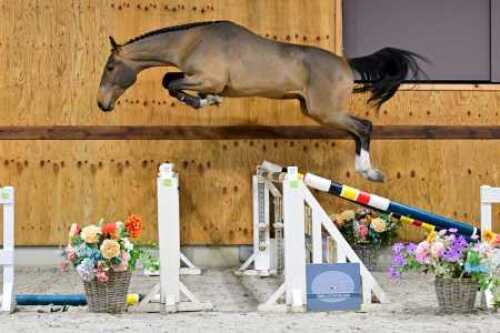Josie Eliasson has been the trusted groom of USA's showjumping rider, Jessica Springsteen, for the pas eight years. "To ensure the horses' welfare you really have to know and understand your horse. So my advice is to start to learn to read your horse!"
Could you introduce yourself and tell us about your job?
My name is Josefine and I have worked for Jessica Springsteen for the last eight years. In the beginning, I was based at her home yard and I rode a little bit, but for the past six years, I have travelled around the world with her and horses as her show groom.
How did you begin your career in the industry?
Initially, I started riding when I was around five or six-years-old, and I fell in love with horses. When I was slightly older, I had a nice young horse that I competed with in Sweden. The owner of the stables where I kept my horse, used to compete regularly as well in the National Young Horse Championships, and I would go with her and groom for her. I soon realized that I really enjoyed grooming, and she was always very encouraging. She used to say that I was very good at it, and I remembered all of the important small details.
I then went to visit a friend of mine, who at the time was working with horses in Switzerland. After only about two days, I knew it was what I wanted to do, so I asked if she knew anyone who needed help at their stables. That is when I got a job with Romain Duguet – I still had my horse but I managed to lease her out, and I packed my bags for Switzerland as a permanent move. I stayed in that job for about a year, before I went back to Sweden. I realized that what I really wanted to do was to become a show groom, and in Europe, so I felt a bit restricted without a horsebox license. But before I had even done my first HGV driving lesson, I got a job with Jessica, and that was over eight-years-ago now.
If you could go back in time to the beginning of your career, what advice would you give yourself?
I would tell myself to listen to those who have more experience. What I love about this profession is that you are always learning new things. This is for two reasons – because the sport is evolving, as well as the fact that every single person has their own systems and techniques. I say to ask more questions – that is how you learn.
You often make the long journey across the Atlantic Ocean for competitions, how do you ensure that the horses are still fit for competition after the trip? Do you have any top advice for ensuring their welfare?
The key is to really know and understand your horse, this way you can notice the small signs that something might be wrong. The earlier you can see an issue, the more able you are to help them with whatever they need. It can be easier to spot this with your Championship horses as you spend so much time with them and you get to know their habits so well, so you can see the smallest changes in their behaviour and do something about it before it becomes an issue.
Do you have any superstitions or a certain routine that you have to do at an important competition?
I think everyone has their own unique superstitions when it comes to the more important classes. No matter what I always tell my rider to have fun, and I give the horse a little pat. Of course, during the bigger classes, I do this quietly so I do not interrupt my rider’s concentration and focus – but I still do it.
Could you tell us about the string of horses that you look after and some of their characteristics?
Our most special horse is Don Juan Van De Donkhoeve, Jessica’s Olympic Games horse. I have an incredible bond with him. You spend so much time alone with your Championship horses that you get to know them in a different way. As a groom, I think you always tell yourself you have a special bond with your horse, but I really think we do. For example, when I walk into the stable he will whinny for me but he doesn’t do that with a random person. He is very important to me – I am very emotional when it comes to him. He is a stallion, but he is the nicest stallion I have ever handled.
I always video every class – I guess that is another superstition that I have – even if there is a live stream or if you can buy the videos. If someone else is recording, I don’t know what to do with my hands, I need to hold a phone. Whenever I film Don [Juan Van De Donkhoeve] I always seem to be giving my commentary of the round, telling him ‘You can do it!’
Hungry Heart is another of our top horses who is competing at the 5* level. He is 12-years-old, and has the biggest character in the stables. He is like a dog, you can play with him. I always joke that I think I could teach him to sit if I really tried. He is a very funny horse. We have a couple of other younger horses who are very exciting, I think the future is looking good.
How do you ensure that they are able to peak at the most important moments during the year?
We try to work backward from a specific competition or goal to ensure that we have planned the best possible schedule for that individual horse. If we know that a horse jumps better during their second week of competition, then we will make sure that it competes two weeks in a row.
As a groom, I try to keep their routines as much the same as when they are at home, as I think that the horse takes comfort from that. Of course, at the bigger competitions, you will use things such as massage blankets more but I try to keep it as simple as possible and let them be horses.
How important do you think sporting Majors, such as the CHIO Aachen, or The Championships, Wimbledon are in sport?
I think it really increases the levels of visibility of the sports. It is always great to watch the highest level of sport, and this is what the sporting Majors provide. They provide a chance to win something beyond the normal competitions, such as the Rolex Grand Slam of Show Jumping. I think that even a non-equestrian fan would find this exciting to watch.
If you could pass one thing on to an aspiring groom, what would it be?
I would give them the same advice that I would tell my younger self – to learn from and listen to the more experienced grooms. I would also say do not be afraid. A lot of people are comfortable about where they are working, but they are not as happy as they could be. Of course, it is scary to try something new and to make a big change in your life, but it is so important to find the right place for you. You also have to love horses – as a groom, you have to work such long hours and there is a lot of travelling – but if you love horses it is the best job in the world.
source: Press Releasze/ F. © Privé



